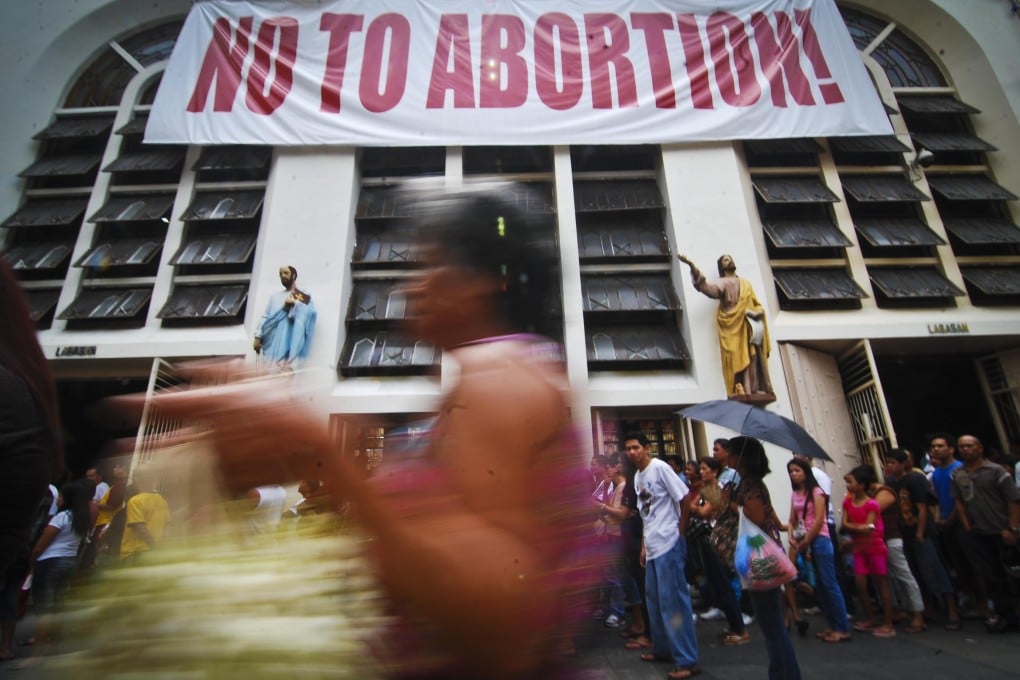Is Catholic Philippines ready to decriminalise abortion? Its next president is about to decide
- In the deeply religious nation, abortion is a taboo, a crime and a sin. Yet hundreds of thousands of unsafe procedures happen every year, with sometimes horrific results
- Campaigners say decriminalising it could both save lives and cut the number of unwanted pregnancies. What’s more, presidential candidates are beginning to listen

Sarie* is a 29-year-old single mother raising a six-year-old son in her parents’ home in Leyte. When she fell pregnant with her second child in 2021, her immediate thought was to “terminate it”.
“I’d only been dating my ex for two months when I found out I was pregnant with my second child. He has four kids from his previous partner, and I had one with mine. We couldn’t afford to raise another child – that’s why I wanted to abort.”
Her ex was hesitant about that idea, not least because his youngest child was born with a disability after a failed termination attempt with a backdoor abortionist.
It is estimated that every year, between 400,000 and 800,000 illegal and unsafe abortions are performed in the country, and that of these, around 100,000 will result in hospitalisations. At least three women die every day due to complications from unsafe abortions. Pinsan, the Philippine Safe Abortion Advocacy Network, estimates that in 2020 1.26 million women and girls underwent unsafe abortions.
However, with a general election looming in May, there are signs the country’s attitudes may be beginning to change, albeit slowly, with various presidential candidates suggesting they might be open to reviewing the law.